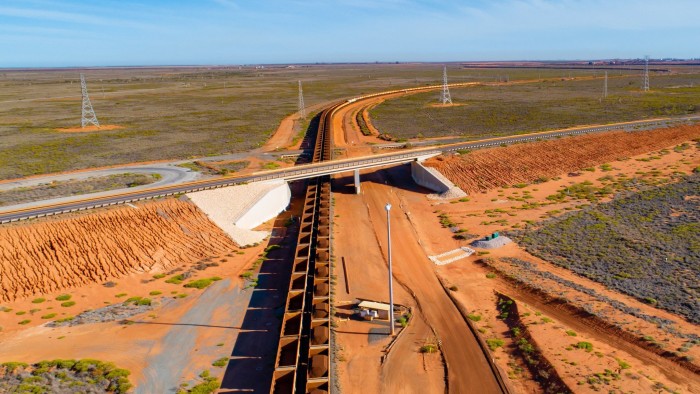Miners have a role to play in fighting climate change

Simply sign up to the Climate change myFT Digest -- delivered directly to your inbox.
Resource companies today face two inescapable truths. First, the climate is changing and, second, our activities and the use of our products are contributing to that change. These are truths that cannot, and must not, be avoided.
There is a third truth: our operations have also made the world a better place. No one burns coal or gas for the sake of it. Steel is not produced to build stockpiles. The energy and resources that are created by the extractive industries lift the living standards of billions of people around the world, increase life expectancy and, ultimately, drive social development.
As geologists who spend their careers understanding the processes that influence the earth’s development, we at BHP recognise more than most people the impact that rising carbon dioxide levels in the atmosphere can have. We can see the extinction events in the geological record.
We recognise too that those most likely to suffer the consequences of global warming are people from the lower-income regions of the world that are least likely to have contributed to the problem and least able to respond to it.
It may be uncomfortable for some, but many solutions to global warming — such as increased electrification of transport — will require more mined resources rather than less. Electric motors use 80 per cent more copper than an internal combustion engine. Electric cars may in many countries source their power from coal-fired generation for decades to come.
That is why we must change the current assumption that there are easy, single solutions and acknowledge that there are many competing perspectives that must be taken into account in the pursuit of effective responses to climate change. It is also why I believe that those who simplistically call for divestment from all resource companies are fundamentally wrong.
The mining industry must play a leading role in this. Today, BHP is committing to spend $400m over the next five years on research and to implement new responses to global warming. A range of solutions are vital, from carbon capture and storage to use of renewables and reforestation. The money will be invested in these as well as other innovations and partnerships.
We hope the fruits of this investment will allow us to both produce the commodities the world needs and enable them to be subsequently used in a way that causes as little damage as possible. That focus on how our products are used is crucially important and in many respects our core challenge. Much of the emissions from the resource industry come at the end of the value chain, as our customers process our commodities into products like steel. For BHP, these “scope 3 emissions” associated with the use of the resources we produce are nearly 40 times greater than our own direct emissions.
This shows why we all have to be part of the solution and why the divestment movement is misguided. We are working with the shippers that transport our products on new technologies to deliver a greener future for the freight industry. We are working with the steel industry to reduce carbon emissions associated with creating new infrastructure. No sector of the economy can do it alone, but it is clear that resource companies and energy intensive industries must step up to take their share of the responsibility and action.
There is also a critical role for public policy. Regulatory and policy responses from governments must play a part to prevent emitters from simply outsourcing their carbon footprint to others and forgetting about it.
The price of tackling global warming will be high, but the cost of failing to do so will be higher still. We have made clear commitments to meet the challenges and are ready to be held to account on our performance. It’s time for others to do the same.
The writer is chief executive of BHP
Comments